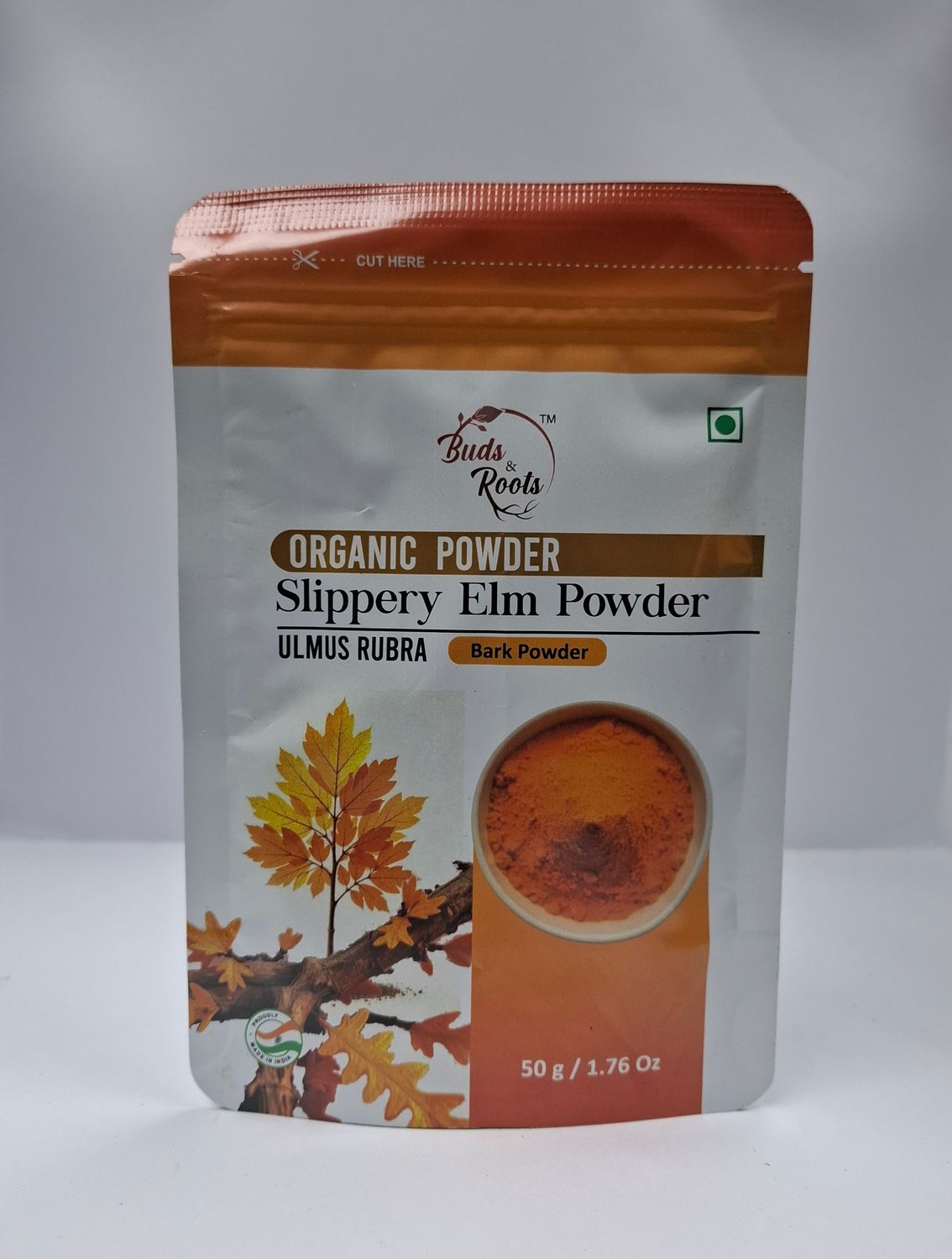BUDS & ROOTS SLIPPERY ELM POWDER 50G
Digestive health
Soothing mucilage: The mucilage in slippery elm coats the entire digestive tract, protecting against excess acid and irritation. It is used to ease symptoms of conditions such as acid reflux, heartburn, indigestion, and bloating.
Balancing effect: Slippery elm can help normalize bowel movements, acting as a bulking agent to soften stools and provide relief from constipation. The mucilage can also absorb excess water, which helps firm up stools in cases of diarrhea.
Promotes healthy gut bacteria: It functions as a prebiotic, meaning it serves as food for beneficial gut bacteria, helping to create a balanced gut microbiome.
Throat and respiratory relief
Sore throat and cough: As a demulcent, slippery elm's mucilage forms a protective film that coats and soothes the mucous membranes of the throat, reducing irritation and coughing.
Inflammation: Slippery elm may help reduce inflammation in the respiratory tract. It is a common ingredient in lozenges and herbal teas for soothing a sore throat.
Skin and wound care
Skin irritation and inflammation: Applied topically as a paste or poultice, the mucilage can soothe inflamed skin conditions like psoriasis, eczema, and acne.
Wound healing: Historically, it has been used to help with wound healing and to soothe burns,
